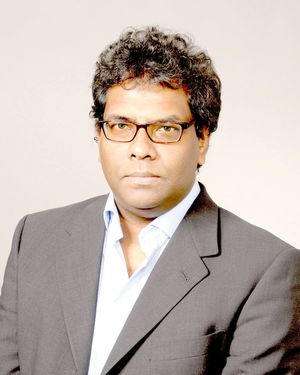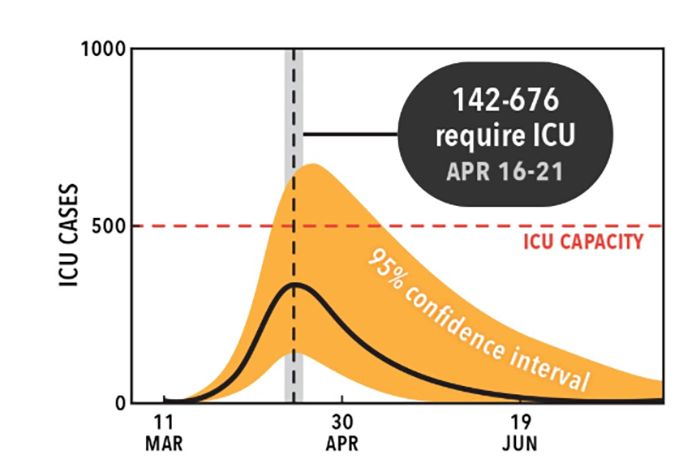
How does an epidemiologist go about daily life in the midst of a pandemic?
Edwin Michael is an epidemiologist and professor of biological sciences at Notre Dame. He’s the lead investigator on SEIRcast, an online portal developed by researchers at Notre Dame and the University of South Florida. The portal uses data to forecast how hospital services and resources may be impacted during the ongoing coronavirus pandemic.
Developed primarily for use by government and public health service workers, the portal models predict COVID-19 disease transmission by using county data of daily reported infections and human movement restrictions, such as shelter-in-place and social distancing orders. As of June 30, the portal contained data and forecasts for 12 states, including Indiana. The portal is expanding and eventually will include all 50 states.

Notre Dame Magazine recently spoke with Michael about what activities he considers safe, of moderate risk or very risky during the coronavirus pandemic:
Going for an outdoor walk, run or bike ride: “No risk, as long as you maintain (social) distancing,” Michael says.
Going for an outdoor walk, run or bike ride with a group: “I would be very cautious,” he says, emphasizing the need for social distancing and wearing face masks.
Getting a carryout food order: Pretty safe. Michael said he feels comfortable ordering carryout food and has been doing that lately.
Eating at a restaurant on an outdoor patio: “I would still be uncomfortable. I personally would be,” he says.
Eating indoors at a restaurant at 50 percent seating capacity: “No way, I would not do that right now,” he says.
Going to a gym or other indoor fitness facility: “No way. That is high risk,” he says.
Going to a grocery store: A medium risk activity, and one he’s undertaking on a regular basis, Michael says. At the grocery store, everyone should wear a mask and maintain social distancing. “It’s not perfect, but you know what? You have to go to the grocery,” he says.
Going to a bar or a nightclub: “That’s very high risk,” he says.
Taking a driving vacation: Medium risk because you have to stop along the way for food, gas and potentially to stay someplace overnight, he says.
Staying at a hotel: Risky at this point, he says.
Attending a team sports event as a fan, such as going to a baseball or football game or soccer match: “No way,” he says.
Going to an indoor shopping mall or department store: Medium to high risk, he says, depending on how crowded it is and whether people are wearing masks.
Visiting a Lake Michigan beach: “If it’s not crowded, I wouldn’t mind. If it’s crowded, head for the hills,” he says.
Michael emphasizes that people need to keep washing their hands, wearing masks and watching their distance. “Everybody has to be responsible,” he says. “Because it’s not me, it’s the other people you’re protecting.”
Michael’s family remains in London. He usually flies there every six weeks, but he has not traveled since the pandemic started spreading in late winter. That’s been hard, he says.
Since the campus shutdown in mid-March, Michael has been going to his Notre Dame office every day for his work with the COVID-19 portal. His main area of research is tropical infectious diseases, but his work in that area is on hold because of the coronavirus spread.
Michael joined the Notre Dame faculty in 2011. He will be leaving the University July 18 to take a new job at the University of South Florida.
Margaret Fosmoe is an associate editor of this magazine.